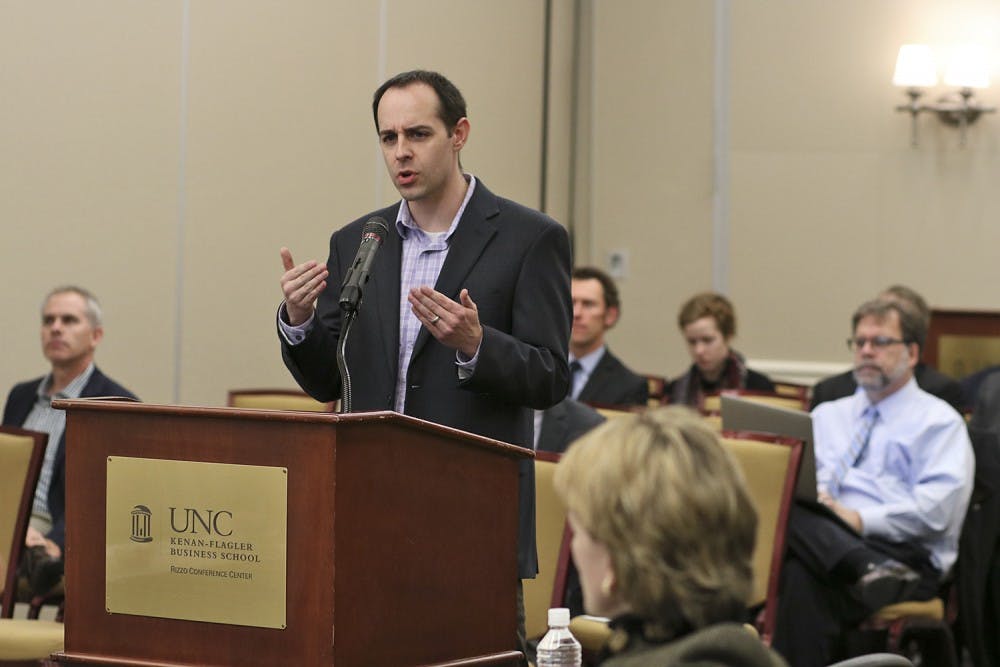Brad Ives, associate vice chancellor for campus enterprises, explained the goals — net zero water use, zero waste and net zero greenhouse gas emissions — to the Board of Trustees’ Finance and Infrastructure Committee Wednesday.
“They’re not just lofty aspirations — they’re really business musts,” Ives said.
UNC’s energy use is nearly flat from 2003 to 2015, and the University is using much less water per square foot than it did in 2000, Ives said, but the third goal — reducing greenhouse gas use — will be a challenge.
UNC won’t achieve the 2020 coal pledge to stop using coal by the end of the decade, Ives said.
“The biggest challenge for us is the coal plant on Cameron Avenue,” he said.
Ives said attempts to make the plant greener by converting it to burn biomass didn’t work out as planned.
According to his slideshow, the coal pledge was “quietly abandoned,” with a wait-and-see approach adopted in 2012 without public announcement.
He said by the end of 2016, UNC will have a new plan for how to stop using coal.




